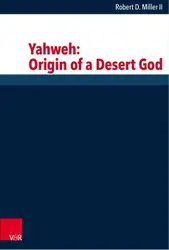This exegetical study of creation and nature in 4 Ezra argues that this first-century Jewish apocalypse's profound pessimism concerning humankind and the present age is matched by a surprisingly robust belief in the goodness of the created order. 4 Ezra presents the natural world as standing with God over and against corrupt humankind, envisions substantial elements of continuity between the ages and hints that those parts of the earth that remain unsullied by humankind still witness to God's sovereignty, love and justice and even serve as material pointers to the new creation. This study calls into question the persistent assumption that apocalypticism and the 'apocalyptic eschatology' of the historical apocalypses in particular necessarily entails a profound dualism. Emerging as it does from an experience of historical disaster and unresolved questions of theodicy, 4 Ezra especially is often considered an apocalypse in which the doctrine of the two ages has been radicalised to the extent that creation, history and life in this world have lost their meaning or significance. The results of this study, however, indicate that while 4 Ezra considers the world of humankind to be corrupted and corrupting, in the natural world the creator's sovereignty is not so obscured, and there his original intentions for creation can still be perceived. This study provides a fresh reading of 4 Ezra that takes seriously the book's unity and coherence. Its conclusions suggest that it may be best to abandon the label 'apocalyptic eschatology' given its potential mask the interesting complexities and mix of continuity and discontinuity that attend the portrayal of creation, nature and hope in an apocalypse like 4 Ezra.
Starten Sie noch heute mit diesem Buch für 0 €
- Hole dir während der Testphase vollen Zugriff auf alle Bücher in der App
- Keine Verpflichtungen, jederzeit kündbar
Autor*in:
Reihe:
Band 237 in Forschungen zur Religion und Literatur des Alten und Neuen TestamentsSprache:
Englisch
Format:

The Hebrew Bible in Light of the Dead Sea Scrolls

Christ Identity : A Social-Scientific Reading of Philippians 2.5-11

The Meaning of the Letter of Aristeas : In light of biblical interpretation and grammatical tradition, and with reference to its historical context

"Who is like Yahweh?" : A Study of Divine Metaphors in the Book of Micah

How Prophecy Works : A Study of the Semantic Field of נביא and a Close Reading of Jeremiah 1:4–19, 23:9–40 and 27:1–28:17

Writing a Commentary on Leviticus : Hermeneutics – Methodology – Themes

Imperial Visions : The Prophet and the Book of Isaiah in an Age of Empires

The Synagogue in Ancient Palestine: Current Issues and Emerging Trends

Yahweh: Origin of a Desert God

Like Mount Zion : Conceptual Metaphor and Critical Spatiality in the Songs of Ascents

I Appeared as El Shadday : Tracing the Origins of the God of Israel
